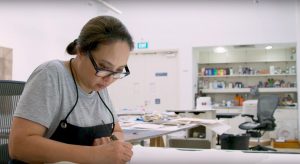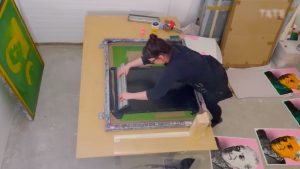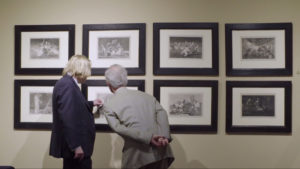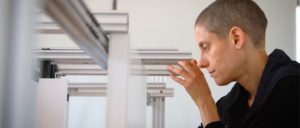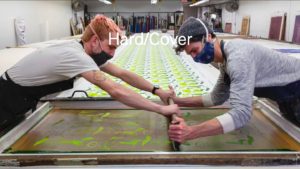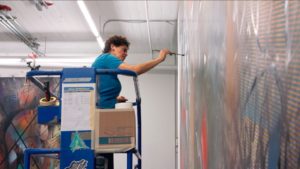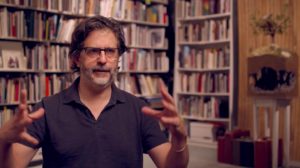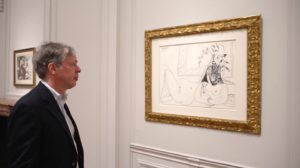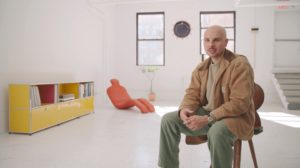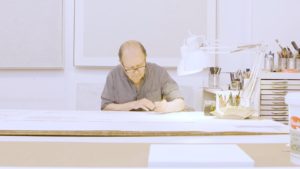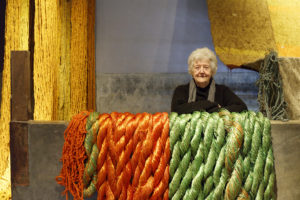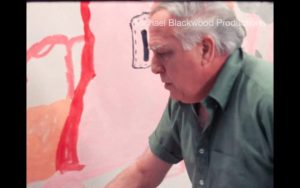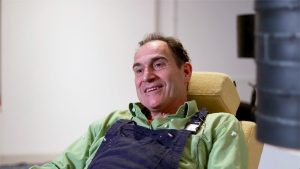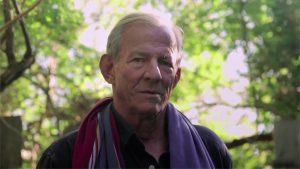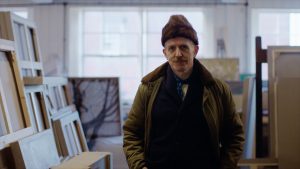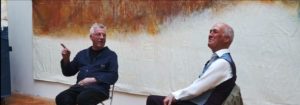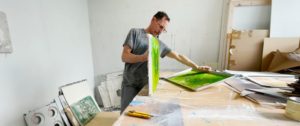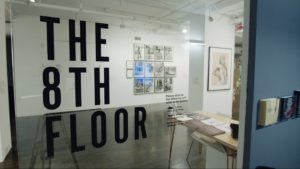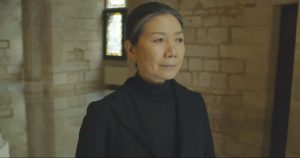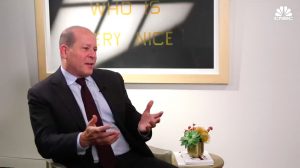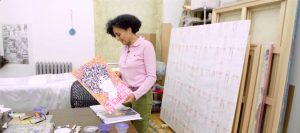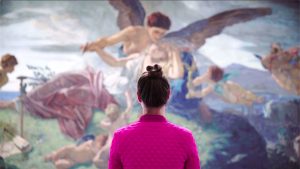
“I think it is really important to consider the idea of dimensions and depth in a really screen-based environment, where we stare at the flatness of gadgets all the time. But the color and surface is often backlit. So what does it mean for an object that is quite flat to be lit by its environment? And that is what painting is – it is an object that we don’t particularly hold or feel, but it leaves the wall slightly, but never comes into the middle of the space.” — Genevieve Chua
We are all getting in elevated levels of screentime these days in quarantine. Genevieve Chua, one of the most exciting young artists in Singapore, investigates the impact of our interaction with screens in her deceptively spare work. Chua is currently featured in her largest solo exhibition to date at STPI – Creative Workshop and Gallery, Twofold, on view with now limited accessibility. In this exhibition trailer, Chua discusses her exploration of materiality and intimacy in her works, and how the printmaking process at STPI encouraged her.
From STPI:
STPI presents “Twofold” by Genevieve Chua, the artist’s largest solo exhibition to date. It features new print-based works from her residency, which began in November 2019, and paintings from two ongoing series in her practice, Edge Control (2016 – ) and After the Flood (2010 – ).
Central to the exhibition is Chua’s expanded idea of painting as a medium that occupies ‘two-and-a-half dimensions’. In Edge Control, Chua employs a hard-edge monochromatic language that links the unique shape and content of each painting. Her print-based works developed at STPI feature graphic effects which generate optically deceptive imagery, such as the moiré pattern. These works combine several printmaking techniques, including screenprinting on acrylic and relief printing on paper.
“Twofold” is the artist’s exploration of fundamental questions of painting, particularly its perception and constituent materials. It arises not only from ideas of human vision and simulation, but experiences of interpretation which unfold over time.
Guest Curator: Melanie Pocock, Curator, Ikon Gallery, UK.




